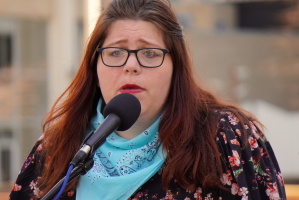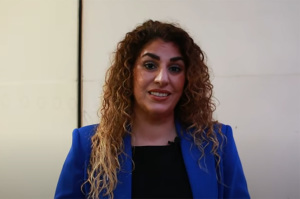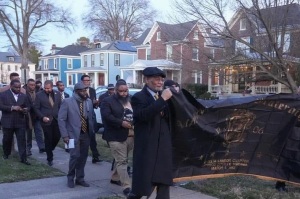Author: God Does Not Exist for Our Self-Gratification
Peter Rollins hopes his writings inspire a revolution in religion.
Born in Belfast, the Irish author grew up in the shadow of "The Troubles," Ireland's civil strife between Protestants and Catholics. The uprising he advocates in his new work Insurrection: To Believe Is Human – To Doubt, Divine, however, is spiritual rather than physical. Believers have commodified Christ, he argues, and it must stop.
In an interview with The Christian Post, Rollins reveals the trajectory he says Christians must follow to transform their faith. He also gives a word of warning – it's going to be a bumpy ride.
CP: You were born and educated in Ireland but now live in the United States. How do you feel about America?
Rollins: I've been traveling to America for many years. It's been a home away from home. The East and West Coasts and the center of the country all have different vibes and atmospheres. Despite this, people’s demeanors are kind and generous everywhere. Coming to America has thus been very refreshing.
CP: You have an extensive background in philosophy. Why do you enjoy it and how does it relate to Christianity?
Rollins: The reason I started training in philosophy was because I thought I knew all the answers and wanted evidence for my conclusions. As I studied it, it critiqued me instead. Many philosophers from hundreds of years earlier had asked the same questions and arrived at different conclusions than me. In much the same way, the Christian tradition has always had a relationship with serious thinkers and serious questions.
CP: Who are some philosophers you'd recommend? Why?
Rollins: I started a group called Atheism for Lent a few years ago. We started reading the great critics of religion and philosophy for all 40 days of Lent. There is something powerful about people like Nietzsche, Marx and the like critiquing my position.
What I love about philosophy is reading a philosopher which causes me to question myself and look deeply into my own heart and ask why I'm a Christian and why it matters to me. Some of these teachers have important things to say about the church.
CP: Your latest book, Insurrection, argues that doubt is an essential element of Christianity. Why should Christians lack certainty?
Rollins: I'm not about getting people to doubt but see what they really believe.
Our real beliefs aren't intellectual but seen in our actions. If you want to know somebody, you look at their actions more than their thoughts and words. What I'm trying to do is get people to question, critique and examine themselves about the beliefs they think they have. We question the intellectual to see how we live in our daily existence. Christianity is not intellectual, but material. It transforms material life.
CP: The skepticism Insurrection advocates questioning established church tradition and dogma. What's wrong with the modern church?
Rollins: One of the problems I see is how we treat God as a product. If you imagine the world as a big vending machine, we've added God to things like cars and houses to make people happier. God does not exist for our self-gratification. God exists in the love we have for each other and when we are committed to acts of grace.
Alcoholics Anonymous is a great example of this. It starts with admitting your material reality is that of an alcoholic. From there, people accept you for that reality, which is an act of grace. The moment you enter into a community where you are loved for who you are, you're free to change who you are.
CP: Insurrection criticizes Christians who use God solely for understanding and comfort. Why is this kind of relationship bad for Christians?
Rollins: If God is an object that makes life meaningful or happy, three things can happen.
Life can be robbed of beauty and become like a waiting room as we expect to interact with God only in the afterlife. Others say you can have God here and now but the problem with that is that there's always the next day following a spiritual experience. Everything between praying and sermons becomes gray and you can't wait for it. The third option is having the capability to experience God and never having it while others around you do.
All three of these options rob life of its vibrancy and joy and leave it in depressing shape. God is not an object to love but present in love itself. The more we love our reality as we experience it the more God is present.
CP: How should Christians relate to Christ every day?
Rollins: At its most basic we should become the place where God is born within us with our words and actions. Christianity to me is about life before death rather than just life after death. When we embrace the reality of life and its beauty we embrace the passion of Christ. The act of sheer love for the other is related to Christ himself.
CP: You envision a world where Christianity exists free of the trappings of organized religion. What would that look like?
Rollins: We all want something that will make us happy. It might be pop music or movies or God. I don't think that tendency will diminish in humanity.
There is something traumatic about life. Even without external trauma, there is suffering implicit in life. It can come from death, meaninglessness or guilt. We need church communities like singer-songwriters. When a singer-songwriter sings, he sings about loneliness and brokenness and makes us confront those issues in our life. We try to cover up darkness rather than embrace it. Only by facing it do we remove its sting.
CP: Experience seems crucial to your worldview. Why is it so integral to living for Christ in the here and now?
Rollins: If we do not confront our ambiguity and doubt it will come out in other ways. It will manifest in self-harm, anger, self-hate, overeating, substance abuse and many other ways.
My wager is that when we have communities where people hear and embrace each other, we'll find that this is where salvation and healing are. We'll find peace and happiness.
CP: What do you hope to accomplish with Insurrection?
Rollins: I hope Insurrection ruptures what readers think and gets them to approach faith in a different way. We think that eternal life is a continuation of this life into the next and living forever. Eternal life starts now. It's time to change how we live and participate in this world here and now.




























